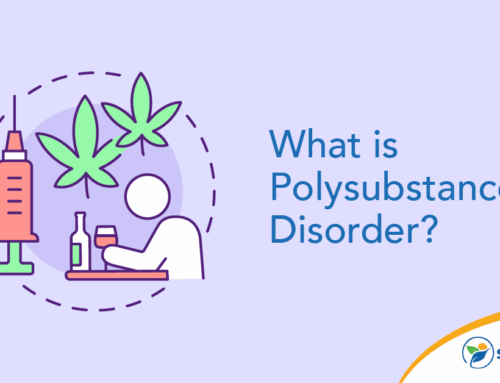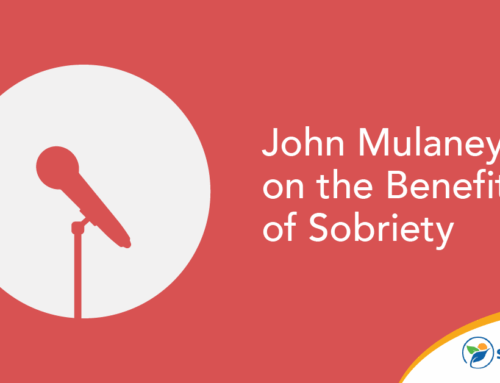Detox is the first stage of every treatment program. Before you can learn what causes substance abuse and how it affects your brain, you need to wait for the substance to leave your body. Unfortunately, detoxing causes uncomfortable symptoms, such as migraines, irritability, abdominal cramps and withdrawal diarrhea.
Hydration and medical care help you maintain your strength so you can successfully begin treatment. Learn what to expect from your program, and talk to a clinic about checking in for a safe detox.
What Are Withdrawals?
Addictive drugs alter your brain activity. For example, if a substance causes your brain to release dopamine, your system gradually adjusts until the dopamine levels out. When you stop using the substance, your brain activity short-circuits. Your system is so dependent on the drug that abandoning the substance is like temporarily removing part of your body.
When you stop taking prescribed medications, doctors usually advise you to taper off to avoid side effects. However, rehab clients stop taking hard or illegal drugs immediately to prevent any further damage. This could save your life in the long run, but you’ll undergo withdrawals while the substance leaves your system.
Withdrawals are the side effects that you experience while you detox. Common withdrawal symptoms include:
- Migraines
- Insomnia
- Sudden outbursts
- Muscle twitching
- Tremors
- Panic attacks
- Depression
- Irritability
- Hallucinations
Detoxification leaves many people dehydrated. You don’t have the energy to drink water, and stomach cramps may ruin your appetite. As time goes on, you notice some or all of these symptoms:
- Dry mouth
- Dizziness
- Fatigue
- Dry, cracked skin
- Headaches
- Low blood pressure
- Racing heart
- Dark-colored urine
Intense cravings frequently lead to relapses when people try to detox at home. However, some find the stomach pain withdrawals to be even worse than the cravings.
Common Stomach Issues During Withdrawals
So, is diarrhea a symptom of withdrawal? While withdrawals on TV shows usually involve shaking hands and violent outbursts, stomach issues are some of the less-publicized symptoms. You may experience the following as the substance leaves your body:
- Nausea
- Vomiting
- Diarrhea
- Stomach pains
- Cramps
- Constipation
Everyone’s path varies depending on the type of drug, dosage amount and length of duration. Your stomach issues could increase for a few days, peak in the middle of the week and gradually taper off. Some symptoms disappear after several hours, while others linger for weeks. Rehab clinics can provide more information about your possible timeline.
People who recently stopped using benzodiazepines sometimes experience “benzo belly,” which is a bloated, distended abdomen. This symptom results from the sudden change in brain chemistry when you abandon the substance. Benzo belly can persist anywhere from a few days to a few months.
Why does withdrawal cause diarrhea? People with preexisting stomach issues, such as gastroesophageal reflux disease (GERD), are more likely to experience cramps, nausea and diarrhea. Stress and physical conditions can exacerbate these disorders, so talk to a doctor about your health before you start your detox.
Coping Strategies for Withdrawal Diarrhea
Withdrawal diarrhea accelerates dehydration, making it even more vital to drink plenty of water. Women should drink about 11.5 cups of water per day, while men need about 15.5 cups. The Mayo Clinic reports that 20% of your daily water intake usually comes from food. When you stay hydrated, you may ease your withdrawal symptoms and recover more quickly.
You might not feel like eating, but your body needs strength to keep running and alleviate symptoms as much as possible. Eat small, light meals with plenty of liquids. Avoid fried, heavy and fattening foods and diuretics such as coffee. Ask your doctor about other ways to nourish your body.
On another note, don’t expect too much from yourself during this time. You might see detoxification as a chance to read, complete schoolwork or catch up on chores. However, just watching TV is challenging when you’re experiencing symptoms, such as suboxone withdrawal stomach pain.
Detox periods aren’t vacation time, but you don’t have to prove anything by overexerting yourself. Relax and let the symptoms pass with sleeping, yoga, meditation and deep breathing. Exercise may improve brain functioning and get your mind off the side effects.
Should You Detox in a Clinic?
At-home detoxes often fail because you can still access the substance. You could throw away the drugs and pour the alcohol down the drain, but many people ask their “plugs” for more when cravings overwhelm them. Often, they tell themselves that they’ll take small amounts to detox gradually. Unfortunately, one dose is enough to trigger their addiction.
Home detoxes also leave you vulnerable to emergency situations. The trip from your house to the hospital could waste precious minutes if you suffer seizures, delirium or loss of consciousness. Plus, you’ll have to manage withdrawal symptoms on your own. Nausea, vomiting, diarrhea and stomach pain withdrawals may drive you back to the substance.
Rehab clinics offer a clean, substance-free environment. When you check in, it’s virtually impossible to get your hands on the drug. Instead, you’ll have medical care and 24-hour monitoring, providing immediate treatment for emergency situations. Your doctor will also review your medical history and preexisting conditions.
Likewise, doctors can prescribe medication that relieves withdrawal symptoms, including cramps and diarrhea. Staff members monitor your vital signs and keep you comfortable during the process. Afterward, you’ll move on to residential or outpatient care, which focuses on the psychological side of addiction while treating any lingering withdrawal symptoms.
When to Seek Professional Help
A medically supervised detox puts you in the right headspace for your treatment program. Instead of fighting the withdrawals, you’ll ease through the symptoms and adjust to your new environment before you start therapy. Sunlight Recovery treats substance abuse disorders and co-occurring conditions, such as anxiety, depression, phobias and PTSD. Contact us to discuss our residential and outpatient programs, medical detoxes and medication-assisted therapy.






